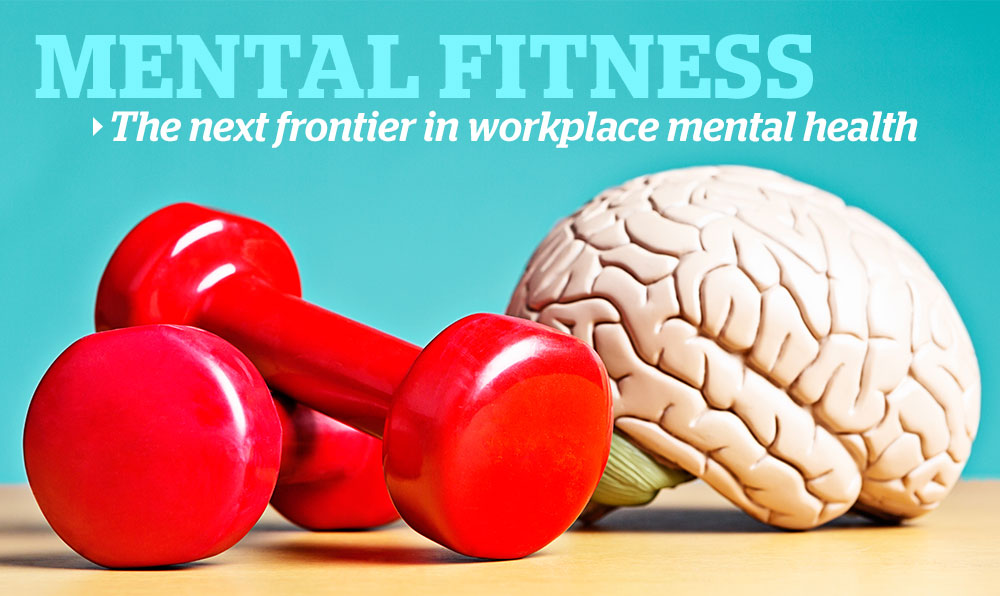

Columns/Blogs
Features
Mental Health
Having no mental fitness plan can be a plan
By Bill Howatt

EDITOR’S NOTE: ‘Mental Fitness: The next frontier in workplace mental health’ is a weekly series, in partnership with Dr. Bill Howatt of Howatt HR Consulting in Ottawa. This series takes a deeper look at mental fitness — an approach to prevent mental harm and promote mental health.
“Having clearly-defined plans can help get us ahead, as well as knowing when to go with no plan.” — Dr. Bill Howatt
Do you believe that unless you are constantly busy, you’re not living?
Consider this question in the context of both your personal and professional lives. Many have a mindset that unless we are constantly moving, we are not living.
Why? Often, because the plan is to do and do; no plan is just being and enjoying the moment, guilt-free.
Mental fitness is about intention. After earning my degree in physical education, I can recall encouraging people I was coaching to get in physical health to choose rest when their bodies were tired. Sometimes, the best thing for the body is to rest so it can recover.
The mind is the same way. Regardless of how committed we are to improving our mental health, sometimes the best plan is to have no plan and stop or engage in something simple and spontaneous, such as enjoying popcorn and a movie.
I’m not necessarily advocating no plan as a standard tactic. However, a healthy choice can be permitting ourselves to go with no plan because we are mentally tired.
Mental fitness can be improved through practising microskills such as meditation and journaling — just allowing a full mind to relax and accept that it is OK to have no plan.
Not having a plan opens our mind to the possibility that we can be OK doing nothing or spontaneously doing something safe that we enjoy.
Having no plan is an action to remove expectations and allow ourselves to stop or just be in the moment with no pressure. Giving ourselves permission to stop and unplug can be liberating when we can enjoy the space.
Psychologically Safe Workplace Awards provide employers tools, data on mental health
Signs that choosing no plan may be helpful:
- constantly feeling you must be moving
- feeling guilty if you stop
- having a sense of constant pressure to perform
- believing unless you are busy, you are not worthy
- pushing yourself so hard you do not have a sense of joy.
Life moves fast, and we have a finite capacity — we have limits.
Unlike machines that get turned off when not being used, we do not have an off switch. We have choices.
Knowing when it is OK to turn off all our plans and expectations and go with no plan can help charge our batteries. It also can help us gain perspective and a mental break from the demands we put on ourselves and those imposed on us.
Activating a no-plan option
Awareness: You feel like you’re on a treadmill and are mentally full. Your motivation is down; you feel drained and sense that you are just going through the motions.
You have been pushing hard, and things seem to be piling up. You are mentally tired and have not given yourself a break or opportunity to just stop. You may even feel trapped by your routine. You and others notice that you are a bit more edgy and short-tempered than usual and not yourself.
Acceptance: Acknowledge that you have a limit, and it is OK to stop. Accept that choosing to go with no plan means you are releasing yourself from your plan.
But be aware of your obligations and have someone step in to ensure that your stopping does not create unwarranted hardship for another person who is depending on you.
Activate no plan: Create space to stop by taking care of all your responsibilities. Advise anyone who needs to know that you have changed your plan and are stopping for the day.
This microskill is most helpful for individuals who are driven to succeed and set high standards for themselves.
The art of permitting oneself to change a plan to no plan can help gain mental space and perspective.
Self-care begins with self-monitoring personal limitations and allowing oneself to rest without feeling this is a sign of weakness.
The point behind the no-plan microskill is to keep top of mind that we have more choice than we sometimes think.
 Dr. Bill Howatt is the Ottawa-based president of Howatt HR Consulting.
Dr. Bill Howatt is the Ottawa-based president of Howatt HR Consulting.
If there is a particular microskill or topic you would like to see Dr. Howatt write on that supports employees’ mental health in the workplace, please send your request to Talent Canada editor Marcel Vander Wier.
Print this page